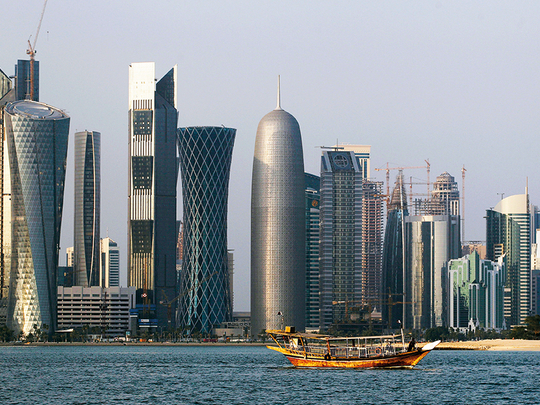
For the past month, the UAE, Saudi Arabia, Bahrain and Egypt have asserted their sovereign rights and shut down air and sea space to Qatari craft, and have taken other necessary diplomatic measures, all in a concerted effort to have the Gulf state live up to its international commitments and undertakings not to fund individuals or groups that spread extremism and terror. The diplomatic measures have resulted in strained relationships and allegations by Qatar that it is being unfairly targeted by what it claims is a blockade — when the reality is that no physical impediments are being placed to prevent the movement of vessels or aircraft from the Arabian Sea peninsula.
Now, handwritten documents from 2013 and 2014 meetings in Riyadh have been published by CNN. In those documents, Qatar made a series of secret agreements with its Gulf neighbours, barring support for opposition and hostile groups in those nations, as well as in Egypt and Yemen. The existence of the agreements has been known, but both the content and the documents themselves were kept secret due to the sensitivity of the issues involved and the fact that they were agreed in private by heads-of-state.
Throughout this past month, the four brotherly Arab nations have been consistent in requesting Qatar to live up to these principles. That the Emir of Qatar, along with other heads-of-state have signed these documents in their own hands, shows that the government in Doha gave an ironclad promise to adhere to fighting the forces of extremism across the Middle East and opposing those who spread internal dissent and sedition across the region. The actions by those in Doha since these documents were signed by the Emir of Qatar clearly demonstrate that the Gulf state has acted inappropriately and contrary to these agreed principles — and the documents now give full, indisputable and evidentiary support to the case made by the UAE, Saudi Arabia, Bahrain and Egypt that Qatar has continued to give voice to, enable and fund those who spread extremism and terror.
These documents are neither computer-generated files, nor generic nor templated. They are, instead, a unique historical agreement, handwritten and signed, a contemporaneous accord worked out around a table — one that has been negotiated, agreed and freely signed by all the participants. Given Qatar’s actions since then, it’s obvious that the signature of the Emir of Qatar is not worth the ink expended in signing his name. That by itself speaks volumes for Qatar’s blatant and unprecedented disregard and contempt for its Arab brothers.








